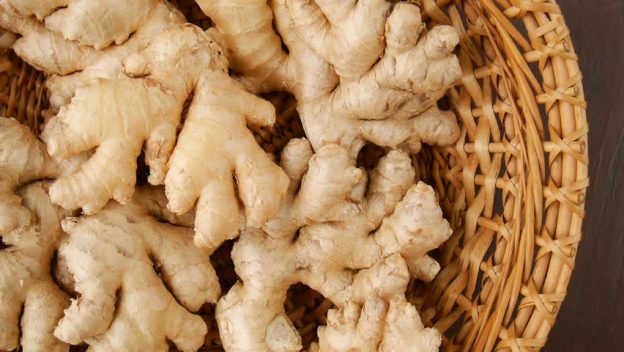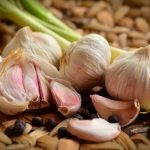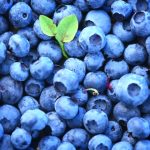Poor cardiovascular health has almost become a highlight of society in 2019. For many reasons, anabolic steroid users also suffer from poor markers of cardiac health. A common theme is a poor lipid profile, which looks at low density cholesterol (LDL), high density cholesterol (HDL), triglycerides and total cholesterol. Of course, there are many other factors that contribute to cardiac health outcomes besides the lipid profile. These including endothelial health and damage, blood pressure, cardiac function etc. But an optimal lipid profile will certainly improve outcomes whereas a poor lipid profile increases the risk of cardiovascular events.
The purpose of this article is to do a general review of literature that looks at supplements’ effects on the lipid profile in the context of cardiac health. The information is useful for anyone looking to assess the evidence on different natural remedies to improving one’s lipid profile and this includes those who use AAS and/or testosterone replacement therapy (TRT). It is important to remember that supplements, literally by definition, are intended to supplement one’s regime. And this is very much relative to the individual. If one has major hyperlipidemia, they need to follow their doctor’s recommendation(s). The role of a supplement is to improve the overall outcome rather than be a treatment of any sort.
(Disclaimer: All information is strictly for general education purposes and reviewing of literature)
For those who use AAS (or really any lifestyle habit that distorts lipids), the best advice is discontinuation. Prevention is always the best medicine. But prevention via lifestyle habits is never perfect, and neither are medications (ex. statins) which are used to improve lipid profiles. Natural supplements do exist, and in 2019 we have literature to help assess their efficacy. Many natural remedies and supplements simply do not work at all. Some do. That’s why it is important to effectively look at the available evidence. Other lifestyle factors are also of extreme importance. A poor diet and/or lack of cardiovascular exercise will truly weaken one’s cardiovascular status, including the lipid profile. Preventative care is a holistic pursuit and it must be approached as such.
Below are different supplements which have been studied to some level on how they affect the lipid profile. Supplements categorized as having major literature behind them have a greater quantityof evidence to draw conclusions from. However, some supplements with less evidence are equally or even more promising based on other known and established facts, including the quality and consistency of available evidence.
Supplements With Major Literature
The use of garlic supplements has been promising in literature for improving cardiac health. Known benefits have included:
- Increased HDL
- Decreased LDL
- Decreased total cholesterol
- Decreased blood pressure
Users have also had lowered blood pressure and improved immunity, among other benefits. Typical doses have ranged from 400mg to 2000mg or higher.
Adverse Effects: Gastrointestinal disturbance (uncommon but not rare), blood thinning (hence important to discuss with one’s doctor before beginning) disturbed breath (odorless pills are widely available to fully prevent this), toxicity occurs at very high doses [1,2,3,4].
Broad range of benefits to supplementing with omega 3s have included:
- Decreased triglycerides
- Increased HDL
- Decreased inflammatory markers
- Decreased platelet aggregation
The American Heart Association (AHA) has recommended 1g daily. Interestingly, supplementation with omega 3s has not been shown to decrease mortality.
Adverse Effects: Blood thinning, mild gastrointestinal disturbance, occasionally increased LDL [5,6,7].
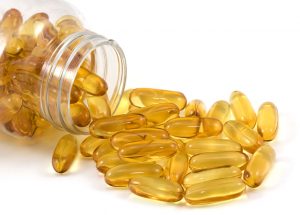
Niacin
Given that niacin has been prescribed for hyperlipidemia, it is no surprise that supplementation has been tied to improved lipid profiles. But higher doses have been needed to achieve lower cholesterol.
Adverse Effects: Flushing (very common), dizziness, sensation of warmth [8].
Supplements With Minor Literature
Red Yeast Rice
The most widely used prescription drug for combating cholesterol is a statin. There are different forms which vary in potency. These drugs improve the LDL marker, HDL count, total cholesterol and decrease triglycerides. They also promote endothelial health and increase nitric oxide (NO) release. Most importantly, statins have been tied to decreased mortality in literature.
The special thing about red yeast rice is that it is a naturally occurring statin called lovastatin. However, high potency versions (with Monacolin K) are banned in the US as they are considered equivalent to the pharmaceutical version. Other countries will vary on this [9].
Vitamin D
While vitamin D has been tied to a long list of preventative health measures (including decreased cardiac mortality); there does not seem to be much evidence to show that it improves specifically the lipid profile. But it is undoubtedly the most overall evidence-based supplement on the market for other benefits [10].
Traditionally used as libido enhancer and natural testosterone enhancer, fenugreek has also been labeled as a supplement for improved cardiac health. While a very small amount of literature is there to support it, there would need to be a lot more research done to reach any sort of conclusion [11].
Generally marketed as an anti-stress supplement, it has shown some promise for improving one’s lipid profile. One study found these improvements in entirely healthy volunteers. This is an obvious contrast from much of the literature on this topic, which is generally improvements in less healthy individuals [12].
Cocoa Extract
Dark chocolate lovers will love the literature on this compound given its tied association to lowering LDL and also improving blood flow. Generally, consumption of about 30g of dark chocolate daily would make it unnecessary to supplement with cocoa extract. It is important to note that lipid improvements have been limited to lowering of LDL only. There is no evidence to show that cocoa extract increases HDL or changes total cholesterol or triglycerides [13].
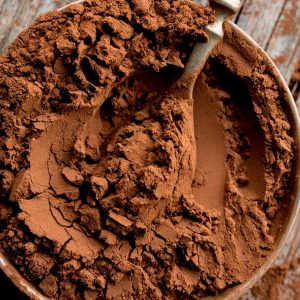
Policosanol
Mixed literature on this compound. Some literature has shown it to be very promising whereas others have shown it to be only placebo based. The available literature is also old. There needs to be new investigation done before any conclusions or recommendations are made [14].
Psyllium
Some evidence to show it may lower LDL to a small degree in those with poor lipid profiles. But no real evidence shows it works in those with healthier lipids. As well, no real effect seen on other lipid profile markers besides LDL [15].
Berberine
Current available evidence has shown very little improvements in lipid markers after supplementation with berberine.
Chromium
There is no real evidence to show that chromium improves the lipid profile. Though it may have a very minor role in helping to improve blood sugar control in diabetics, particularly when used in combination with cinnamon.
Ginger
A little bit of literature is available regarding the effects of ginger on lipid profile markers. It has shown the ability to improve HDL and LDL, but more data is needed to reach a provisional conclusion [16].
Vitamin E
The literature thus far has shown that vitamin E does not improve lipid parameters. On top of that, it has been tied to increased all-cause mortality in literature.
Clinical Context
When looking at supplement selection, it is always important to remember a few things:
- Supplements are not intended to treat or cure illnesses
- Supplements can have adverse effects and/or interactions with drugs
- Supplements have a role in preventative healthcare, but many are not adequately effective.
- Improving a certain parameter does not necessarily improve health outcomes. For example, two different drugs may both improve a certain lab test variable but only one of them decreases long term mortality.
Given those general principles, one should make an evidence-based decision on selecting supplements for preventative health measures. In the context of the lipid profile, there have been a few supplements which have accumulated enough evidence in literature to be worth using. Of course, one’s physician must be consulted prior to a regime change like this.
The supplements that have the highest quality evidence for improving the lipid profile are:
- Garlic– Has consistently improved all lipid profile parameters in literature and has a broad range of other benefits. Seems to be effective at moderate doses but more effective at higher dosages. Next step is finding any associations to overall cardiac disease as well as mortality.
- Omega 3s– Improves HDL as shown in literature but its downfall has been the lack of association to improving mortality. It still remains the most recommended supplemented by cardiologists. More specific literature is needed to establish a better conclusion regarding its ties to cardiac events given the very large list of confounding variables.
- Niacin– Though not commonly prescribed in 2019, it is still an accepted treatment option for hyperlipidemia. Unfortunately, the doses needed to induce benefits tend to be symptomatic for some (but certainly not all) users.
- Cocoa extract– Good amount of literature to support its lowering of LDL. More data needed to establish a conclusion for cardiac events and mortality. It would seem more reasonable to simply consume dark chocolate rather than to supplement with cocoa extract. The most natural option is always the better option than the identical “pill form.”
- Red Yeast Rice– This one is dependent on one’s country. Consistency in literature for obvious reasons given that it contains a statin. The type available in USA does not contain adequate levels.
Disclaimer: All of the content in this article is strictly for general education purpose. Always consult with your physician before consuming anything that may affect your health in any way.
References:
- Ried, K., Toben, C., & Fakler, P. (2013). Effect of garlic on serum lipids: an updated meta-analysis. Nutrition reviews, 71(5), 282-299.
- Steiner, M., Khan, A. H., Holbert, D., & Lin, R. I. (1996). A double-blind crossover study in moderately hypercholesterolemic men that compared the effect of aged garlic extract and placebo administration on blood lipids. The American journal of clinical nutrition, 64(6), 866-870.
- Sobenin, I. A., Pryanishnikov, V. V., Kunnova, L. M., Rabinovich, Y. A., Martirosyan, D. M., & Orekhov, A. N. (2010). The effects of time-released garlic powder tablets on multifunctional cardiovascular risk in patients with coronary artery disease. Lipids in health and disease, 9(1), 119.
- Sobenin, I. A., Andrianova, I. V., Demidova, O. N., Gorchakova, T., & Orekhov, A. N. (2008). Lipid-lowering effects of time-released garlic powder tablets in double-blinded placebo-controlled randomized study. Journal of Atherosclerosis and thrombosis, 0812050006-0812050006.
- Davidson, M. H., Stein, E. A., Bays, H. E., Maki, K. C., Doyle, R. T., Shalwitz, R. A., … & COMBination of prescription Omega-3 with Simvastatin (COMBOS) Investigators. (2007). Efficacy and tolerability of adding prescription omega-3 fatty acids 4 g/d to simvastatin 40 mg/d in hypertriglyceridemic patients: an 8-week, randomized, double-blind, placebo-controlled study. Clinical therapeutics, 29(7), 1354-1367.
- Wei, M. Y., & Jacobson, T. A. (2011). Effects of eicosapentaenoic acid versus docosahexaenoic acid on serum lipids: a systematic review and meta-analysis. Current atherosclerosis reports, 13(6), 474-483.
- Oelrich, B., Dewell, A., & Gardner, C. D. (2013). Effect of fish oil supplementation on serum triglycerides, LDL cholesterol and LDL subfractions in hypertriglyceridemic adults. Nutrition, Metabolism and Cardiovascular Diseases, 23(4), 350-357.
- Kelly, J. J., Lawson, J. A., Campbell, L. V., Storlien, L. H., Jenkins, A. B., Whitworth, J. A., & O’Sullivan, A. J. (2000). Effects of nicotinic acid on insulin sensitivity and blood pressure in healthy subjects. Journal of human hypertension, 14(9), 567.
- Burke, F. M. (2015). Red yeast rice for the treatment of dyslipidemia. Current atherosclerosis reports, 17(4), 22.
- Zittermann, A., Frisch, S., Berthold, H. K., Götting, C., Kuhn, J., Kleesiek, K., … & Koerfer, R. (2009). Vitamin D supplementation enhances the beneficial effects of weight loss on cardiovascular disease risk markers. The American journal of clinical nutrition, 89(5), 1321-1327.
- Gupta, A., Gupta, R., & Lal, B. (2002). Effect of Trigonella foenum-graecum (fenugreek) seeds on glycaemic control and insulin resistance in type 2 diabetes mellitus: a double blind placebo controlled study. Alternative Medicine Review, 7(3), 255-256.
- Raut, A. A., Rege, N. N., Tadvi, F. M., Solanki, P. V., Kene, K. R., Shirolkar, S. G., … & Vaidya, A. B. (2012). Exploratory study to evaluate tolerability, safety, and activity of Ashwagandha (Withania somnifera) in healthy volunteers. Journal of Ayurveda and integrative medicine, 3(3), 111.
- Tokede, O. A., Gaziano, J. M., & Djousse, L. (2011). Effects of cocoa products/dark chocolate on serum lipids: a meta-analysis. European journal of clinical nutrition, 65(8), 879.
- Cubeddu, L. X., Cubeddu, R. J., Heimowitz, T., Restrepo, B., Lamas, G. A., & Weinberg, G. B. (2006). Comparative lipid-lowering effects of policosanol and atorvastatin: a randomized, parallel, double-blind, placebo-controlled trial. American heart journal, 152(5), 982-e1.
- de Bock, M., Derraik, J. G., Brennan, C. M., Biggs, J. B., Smith, G. C., Cameron-Smith, D., … & Cutfield, W. S. (2012). Psyllium supplementation in adolescents improves fat distribution & lipid profile: a randomized, participant-blinded, placebo-controlled, crossover trial. PLoS One, 7(7), e41735.
- Alizadeh-Navaei, R., Roozbeh, F., Saravi, M., Pouramir, M., Jalali, F., & Moghadamnia, A. A. (2008). Investigation of the effect of ginger on the lipid levels. A double blind controlled clinical trial. Saudi Med J, 29(9), 1280-4.




